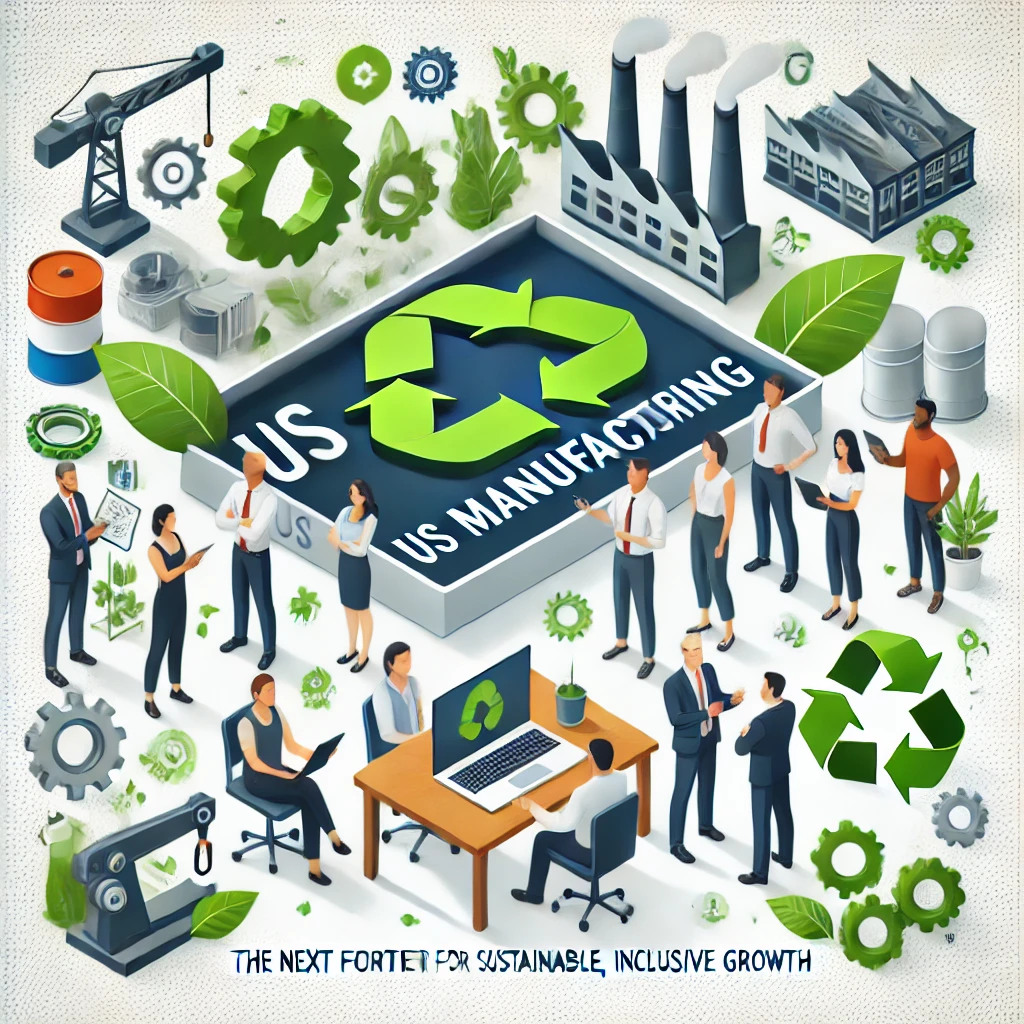Recommendation
How can society build a future that drives sustainable and inclusive growth? Eric Chewning, co-leader of McKinsey’s Aerospace & Defense Practice in the Americas, gained insight into this crucial question over the course of his varied career as a US Army veteran, investment banker, consultant, and chief of staff with the US Department of Defense. Chewning shares his expertise in this McKinsey Podcast – third in the “Future of America” series about sustainability and inclusivity in US manufacturing – with host André Dua, a McKinsey senior partner.
Take-Aways
- The United States must embrace sustainability, inclusivity, and growth.
- Four core goals can guide US manufacturing toward sustainability: Boost productivity and economic growth; buy local; enhance innovation and competitiveness; and achieve self-sufficiency and resilience.
- Cultivate a shared mission and develop trust to unite your employees and your team.
Summary
The United States must embrace sustainability, inclusivity, and growth.
Sustainability is the hoped-for result of business practices that strive to keep the Earth prosperous and healthy for future generations. Inclusivity values bringing together people with varying skills from diverse backgrounds. Growth means creating more manufacturing opportunities locally that positively affect the broader economy. The United States must incorporate all three elements into its manufacturing strategies to ensure a better future.
Available jobs are most often skill-based, not degree-based, so investing in skill-based employment potential will have a positive influence on the larger community. Committing to this approach will bring well-paying manufacturing jobs back to the United States.
Four core goals can guide US manufacturing toward sustainability.
If the United States can achieve four pivotal goals, it can bring manufacturing jobs back to American communities, thus revitalizing them and contributing to the national economy.
If domestic manufacturers hire workers from within the United States instead of seeking cheap offshore labor, they can ultimately reduce costs as a result of self-sufficiency, innovation, efficiency, and skill. America should strive for four goals:
- Boost productivity and economic growth – Manufacturing in the United States plays an important role in the nation’s economy, employing about 12 million people while boosting local economic well-being. American manufacturing accounts for 8% of direct employment and 11% of the country’s gross domestic product – $2.3 trillion. Manufacturing drives 20% of US capital investment, 30% of its productivity growth, 60% of its exports, and more than 70% of business research and development.
- Buy local – Average Americans can support domestic manufacturing in their communities and in their nation, and that has the effect of supporting middle-income families. If you are in the position to hire domestically, you should. The reshoring initiative seeks to bring manufacturing and services back to the United States in order to reduce unemployment, create better manufacturing jobs and contribute to building and sustaining a skilled labor force.
- Enhance innovation and competitiveness – Innovation over the years has improved efficiency, created more jobs, and propelled overall productivity. Despite the growth that innovation fuels, America has experienced a total drop in manufacturing in some segments. Since 1997, the United States has suffered a 25% decline in manufacturing companies and the loss of approximately 4.5 million manufacturing jobs.
- Achieve self-sufficiency and resilience – Leaders need to shift their concentration from efficiency in the supply chain to resiliency so the nation can bounce back rapidly from major world disruptions such as the pandemic, war, and supply shortages. American businesses should support and encourage the consumption of regionally sourced goods.
Consider that China, for example, gets 90% of its value-added manufacturing supplies from within its borders. In North America, that statistic is only 70%.
Cultivate a shared mission and develop trust to unite your employees and your team.
The US Army exemplifies inclusivity. In the Army, people of diverse backgrounds come together with a common sense of purpose. In time, they learn to trust and rely on one another. Chewning cites his time in Iraq, when his battalion commander was Japanese-American and his company commanders included a Native American, a Puerto Rican, and Chewning, who is white. His fellow soldiers were a cross-section of American society, some from the Ivy League and West Point and some straight from high school. Using this model, business leaders can harness diversity and inclusion to build a productive culture of trust and camaraderie.
About the Podcast
Eric Chewning, a partner in McKinsey & Company’s Washington, DC office, co-leads the consultancy’s Aerospace & Defense Practice in the Americas. André Dua, a partner in McKinsey’s Miami office, hosts its “Future of America” podcast.


